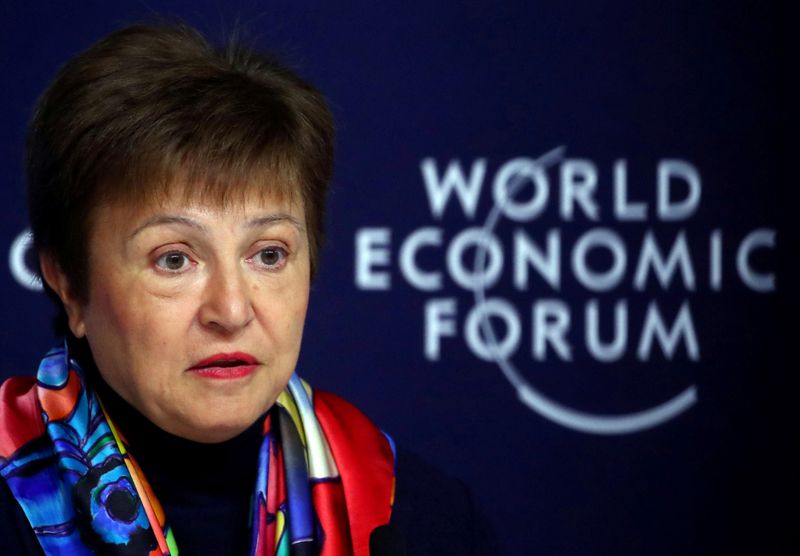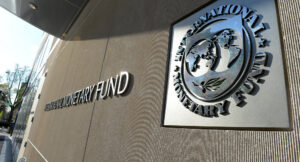IMF Mulls Creating $650 Billion in Reserves After Yellen Nod
3 min read
FILE PHOTO: IMF Managing Director Kristalina Georgieva speaks at a news conference ahead of the World Economic Forum (WEF) in Davos, Switzerland January 20, 2020. REUTERS/Denis Balibouse/File Photo
(Bloomberg) — The International Monetary Fund is considering a plan to create as much as $650 billion in additional reserve assets to help developing economies cope with the pandemic, with an eye on finalizing a decision next month, according to two people familiar with the plan.
The institution’s executive board is discussing the staff proposal informally on Tuesday, and one of the priorities will be to consider how much to issue in the units known as special drawing rights, according to the people, who spoke on condition of anonymity because the talks are private. Attention is now focused on a $650 billion issuance, according to the people, after previous talk of $500 billion.
The IMF press office declined to comment. IMF Managing Director Kristalina Georgieva is expected to release a statement after the meeting, one of the people said.
Momentum has been building for the injection of funds after U.S. Treasury Secretary Janet Yellen leaned toward supporting the action, reversing opposition last year under President Donald Trump. Her predecessor, Steven Mnuchin, blocked the move in 2020, saying that because reserves are allocated to all 190 members of the IMF in proportion to their quota, some 70% would go to the Group of 20, with just 3% for the poorest developing nations.
The IMF is aiming to make a formal announcement of the reserves creation around its spring meetings April 5-11, according to the people. G-20 finance ministers and central bankers last month called on the fund to formulate a proposal, and Group of Seven countries last week said that they back a sizeable allocation of IMF resources to boost members’ reserves and provide liquidity to vulnerable countries.
More than 200 groups including the Jubilee USA Network, a non-profit organization that advocates for debt relief for developing countries, had called on the G-20 to support the creation of $3 trillion in SDRs. They say the funds are needed to help free up resources for health care and social spending. Some Democrats in Congress had pledged support for a similar-sized move.
But an SDR issuance of roughly $650 billion would be about the maximum that the U.S. can support without getting approval from Congress, depending on the exchange rate. Representative French Hill, an Arkansas Republican on the House Financial Services Committee, has urged opposition to an issuance, calling it a “giveaway to wealthy countries and rogue regimes” such as China, Russia and Iran.
Asked by Hill on Tuesday during a House Financial Services Committee hearing if Yellen could say that such “dictatorships” would not receive SDRs, she responded that countries will receive allocations according to their stakes in the IMF.
Yellen also indicated that countries are working toward an agreement with China on ensuring that the Asian country provides SDRs to poor nations and that funds aren’t used to “repay loans from the Belt and Road Initiative,” Yellen said. That refers to China’s effort to build infrastructure including energy plants and railways in countries from Sri Lanka to Greece.
Georgieva, who first advocated for a reserves issuance a year ago, has called for strong action to avoid a scenario where a few emerging markets recover faster but most developing countries are left to languish for years to come. The IMF last issued SDRs during the 2009 global financial crisis, and repeating the move could serve the world well again now, Georgieva said in a blog post last month.
Yellen said Tuesday that she supports “augmenting the reserves of countries that need it so that at this very difficult time we don’t pressure countries to take contractionary, deflationary actions that would make recovery more difficult.
“It’s especially important to channel the world’s resources” to poor countries, she said.



